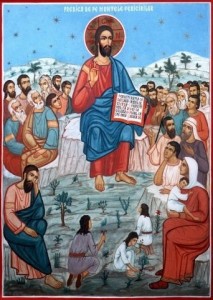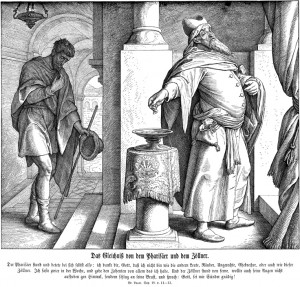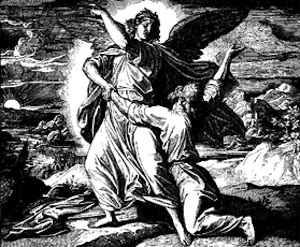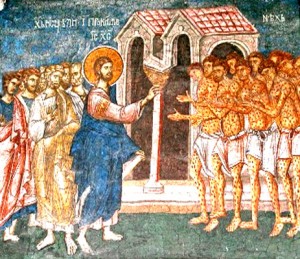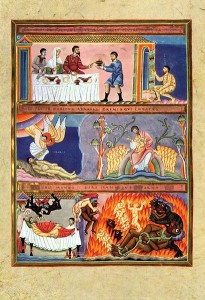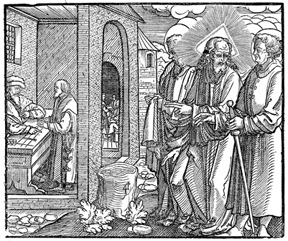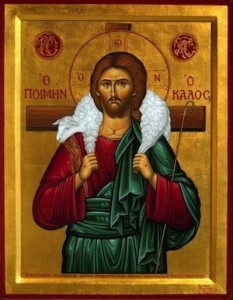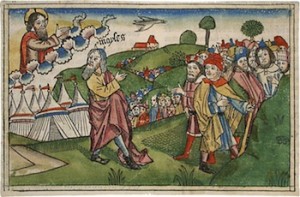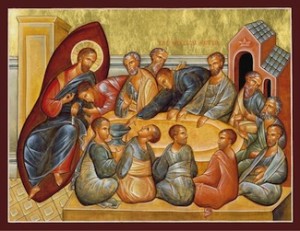Thoughts on Today’s Lessons for Sunday, Nov. 4, 2013.
This reading from Daniel, one of the last books in the Old Testament, reads a lot like Revelation. It is apocalyptic literature, a popular genre of that era that the ancients would have immediately recognized as symbolic, not literal description. Four scary beasts, representing powerful empires of earth! In later verses we learn that they were a winged lion, a tusked bear, a four-headed leopard, and an iron-toothed monster with 10 horns. Who wouldn’t be scared by a dream like that? But the nightmare ends with reassurance that God, not horrifying monsters, wins and will reign forever.
Psalm: Psalm 149
In this Psalm of praise for God’s glory, we sing in the assembly of the faithful, praising God with full hearts and voices, knowing that God takes pleasure in God’s people. But then we get those angry verses about swords and vengeance and punishment. What’s up with that? Perhaps it shows us a people burning with the memory of defeat and exile, in a book of songs that show us not only as we ought to be but as we are. Can we learn to love God and our neighbors?
Second Reading: Ephesians 1:11-23
Christ is King, and God has placed him at God’s right hand to rule over us all, the author of Ephesians assures his flock, writing to the persecuted Christians of Asia Minor in Paul’s name. There’s a role for us in this kingdom, too! As the people of God, we are Christ’s body on earth, called to help with the work of building the Kingdom of God.
Gospel: Luke 6:20-31
Ah, the familiar Beatitudes, Jesus’s Sermon on the Mount, guiding us toward a life of service and love. Well, not quite! That was Matthew’s version. This is Luke’s. It’s a little more edgy, and it asks more of us. These are Christian values as Luke presents them: if you are rich, full and happy, watch out. You’re not doing it right! Give what you have to the poor. Don’t just turn the other cheek but forgive your enemies … and pray for them. As Jesus commands it, “Do unto others” isn’t easy, but it’s essential. It binds us as the people of God.

